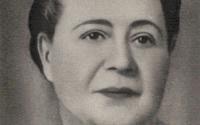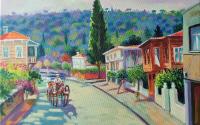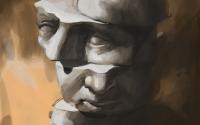September 6, 2002
In the town of Pilas, near Seville in southern Spain, there is not much incentive to move. During the summer months the people of Pilas resign themselves to lassitude and so, this morning, an unusual atmosphere hangs in the air: something smacking of industry stirs, a quiver of music comes from the direction of the conference centre. It is of an intensity so alien to Pilas that even the armed guard, slouched at the gate and keeping a despondent lookout for terrorists, summons the energy to turn his head.
Pilas would not normally regard itself as a target for terrorists, but this week it is taking no chances. In the Complejo Residencial Lantana, something both energetic and politically sensitive is in session: rehearsals for the West-Eastern Divan Orchestra, a group of young Arab and Israeli musicians tutored for two weeks by a man once described by the former mayor of Jerusalem as "arrogant and uncivilised", as a "phenomenon" by the conductor Wilhelm Furtwängler, and as "cultish", "despotic" and most frequently "a genius" by European newspapers. At 11 years old, Daniel Barenboim performed Prokofiev's second piano sonata for Arthur Rubinstein and established himself as a prodigy. In the 48 years since, his reputation has snowballed through careers as a pianist and conductor, engagement in the Middle East debate (he was the first conductor to take Wagner to Israel) and marriage to Jacqueline du Pré. Barenboim, 59, has become a figure of Romantic depth and proportion: a man who hates mediocrity, repetition and rushing at meal times. "Arrogant?" he says, with a loaded smile. "I hope not. An artist can only be great if he is uncompromising."
Half an hour before rehearsals, the Complejo seethes with the competitive energy of a performing-arts school: three thick-necked brass players jam in the shady colonnade while girls with long hair attack their stringed instruments in the dining-room foyer. Sprinklers click and the bald sky glowers, a burnt-out blue straight from the Old Testament. "You are here to audition for the maestro?" asks the receptionist, and she pats me reassuringly on the shoulder. When Barenboim enters the auditorium he is mopping his brow, his head several journey stages in front of his body. The air is dense with concentration. "How many bars after B1 is the next allegro?" he raps (21). "Can you hear the difference between the 5th and the 7th? Listen to the strings. You can smell the difference, yes?" The musicians stare at him with huge eyes. One pimply cellist recoils after sneaking a gulp of water from his bottle. "Non!" thunders Barenboim. "There is no drinking! OK, bar 18, tutti!"
Afterwards, he enters a whitewashed room and reclines on a sofa, drinking an energy drink and talking, talking - he loves to talk. Contrary to his reputation, he says, he is very lethargic, hates getting up in the morning. "You won't believe it, but I'll tell you anyway: I'm actually a very lazy person. I'm not a morning person. On days when there is a rehearsal at 10am, I get up at nine. In Berlin, unfortunately, I live too far from the opera house to have an afternoon nap."
Barenboim is in the odd position of speaking five languages, each with a slight accent. Spanish is his first language; his first nine years were spent in Argentina before his parents, both Russian, moved to Israel then to France and finally to Germany, where he now lives with his second wife, a pianist, and his two teenage sons. He also spent 15 years in London. "It is strange," his Spanish assistant tells me later. "He speaks flawless Spanish, but it is not Argentinian, not from Madrid, not from the north or the south - it is impossible to tell where he comes from."
This suits Barenboim. One of the few advantages that the 21st century has over the early 20th and 19th is, he believes, the pluralism of its societies. "Human beings have not only the possibility but almost the duty - yes, the duty! - to acquire multiple identities." He paddles his arms in a short, expressive backstroke. "That's what globalisation means at its most positive. That you can feel French when you play Debussy, that you feel German when you play Wagner. You do not have to be one thing." He slumps contentedly back on to the sofa as if proud of this idea.
Barenboim has constructed an identity for himself in which he is rooted culturally as a Jew, geographically as an Israeli and temperamentally as a Latino. "It's complicated, but definable. But I have worries about my children. They have a Russian mother and this mixture of a father; they were born in France, but they are not French. They are not Russian. They are not Argentinian. They are not Israeli. They live in Berlin and the language at home is mostly English, but they go to a French school. They say it isn't a problem, but I worry for them."
They are like him, but more so, and he envies them just a little. Barenboim looks longingly back to the 19th century when intellectuals could not only speak five languages but read philosophy in them too. "People like Rubinstein - their culture was frightening by its breadth. Rubinstein knew his Dostoevsky in Russian, and he knew his Goethe in German and his Baudelaire in French." He sucks up his energy drink. "When he played the piano, you sensed all of that. Now, most of the intellectuals - the writers and the painters - behave as if music has nothing to do with them. The musicians live in their own ivory towers and don't associate music with the other arts or even with their emotional lives. What is missing today is the juxtaposition of ideas. This is the problem with contemporary music and with culture in general."
What do his children listen to? He winces. " 'Ip-'op," he says and roars with laughter.
This year, the youngest player at the East West summer school is 13, a Palestinian pianist called Kalim, whom Barenboim tutors with parental tenderness. Of the four years the summer school has been running, Barenboim found last year the most tense. The intifada was a year old, and the students were brittle and suspicious of each other. This year, by contrast, things are so terrible in the Middle East that the young musicians are practically clinging to each other in sympathy. "I give them a little speech when they get here," he says. "I say, 'We have a common goal, to create a concert.' I say, 'You must remember that this last year has been dreadful, for everybody. And there's no point saying it was more terrible for us than for them. It's terrible for everybody.' I say to them, 'A wound when it heals, it closes. But the doors, it is only we who can keep them open.' This is not a political thing, it is a human conviction."
Barenboim makes sense of the politics by relating them to music. Yitzhak Rabin, he says, had a very "linear" way of thinking, could handle the horizontal melody of fighting Israel's external enemies, but could not handle the harmony, that is the "vertical pressure" of terrorism from the inside. How would he characterise Ariel Sharon, musically? He laughs unhappily. "Well, I think he is rather unmusical." He allows a fierce little pause. "In Israel, the people with experience have no vision, and the people with vision have no experience. And this is a terrible thing. But the most terrible thing is that there is no alternative - I mean, the alternative to Sharon is Sharon plus.
"I think Sharon is leading the country along a path that is, long-term, against the interests of Israel and the Jewish people. Time is not on Israel's side, nor are demographics. To put it musically, it is as if Sharon thinks, 'I will play a fast movement slow, because by playing it slow it will have more expression.' Whereas the expression is linked to a certain speed and the meaning is lost if you play it too slow. It's time that somebody in Israel wakes up and sees that the Jewish people are on a path which, for the first time since the creation of the state, makes one doubt that there will always be a Jewish state in Israel. That would not have been possible 10 years ago."
Barenboim has pitched his life against what he calls "mechanical repetition". He hates it to the extent of subverting perfectly good rehearsal techniques to avoid growing bored - a trick that infuriates his colleagues. His time as musical director of the Deutsche Staatsoper, the opera house of the former East Berlin, has taught him to value the mentality of eastern European players over that of musicians from the west. "I find that the people who have lived under a totalitarian regime have a better understanding of democracy and freedom than many people who have only lived in open society. I find, for instance, that they know how to work together so wonderfully and quickly: a vote is taken, it's decided in a wonderfully democratic way. In western orchestras there are clashes and fears of influence of certain groups. I suppose the former east still looks on the bright side of democracy, whereas people in the west have seen the dark side too."
The most talented player he has ever encountered is still, by a long way, Jacqueline du Pré. "Absolutely, absolutely, what she had is rare." The pair were married in 1967, she converted to Judaism and, until she died of multiple sclerosis in 1987, they were Israel's darlings. In the film Hilary and Jackie, she is portrayed as endearing but loopy. Did her talent make her strange? Barenboim sighs. "Well, in a way, there was a part of her that was so childlike. Not childish. Childlike, naive. When she finished playing a highly complex composition, she was perfectly the girl next door. When you were with her, you didn't see a hint of this complexity of her playing." She played, he says, as if she were composing the music as she went along. Did they compete with each other? "Non." He smiles. "We were of different sexes, you know that?"
When he is conducting, Barenboim says, he achieves the perfect state of physical, rational and emotional grace. At the end of a concert, all he wants to hear is silence. "You measure your success not with the volume of the applause, but with the silence with which they listen."
Good days, bad days - the only thing that gets him down is fatigue. Everything else is enlightenment. The interview has overrun and he is woefully late for afternoon rehearsal. He shrugs and blinks his currant-black eyes. "There are no rules," he says. "I live my life as I make my music, fighting against routine."
http://www.guardian.co.uk/arts/fridayreview/story/0,12102,786391,00.html






